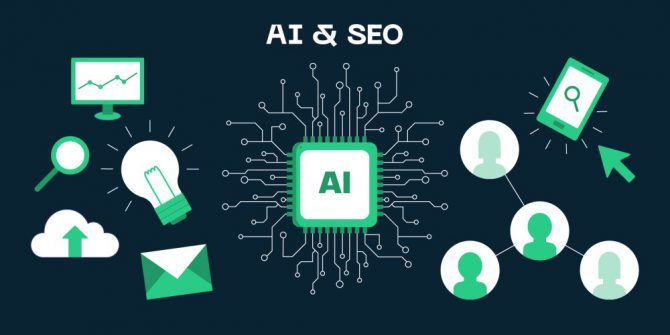The landscape of search engine optimization (SEO) has undergone significant transformations with the advent of artificial intelligence (AI) and machine learning technologies. Among the notable advancements is Google’s RankBrain, an AI-driven component of Google’s search algorithm that has reshaped how search results are ranked and how SEO strategies are developed. This article explores RankBrain, its impact on search, and how AI is influencing the future of SEO.
1. Understanding RankBrain
What is RankBrain?
RankBrain is an AI-based system introduced by Google in 2015 as part of its Hummingbird algorithm update. It is designed to help Google better understand and interpret search queries, particularly those that are ambiguous or unique. RankBrain uses machine learning to process and refine search results based on user intent and context.
Key Features:
- Machine Learning: RankBrain utilizes machine learning algorithms to analyze and learn from search patterns, helping to improve the relevance of search results over time.
- Contextual Understanding: The system is adept at understanding the context of complex or novel queries, delivering results that align with user intent rather than relying solely on keyword matching.
- Query Interpretation: RankBrain can handle previously unseen search queries by interpreting and predicting the most relevant results based on historical data and patterns.
Impact of RankBrain:
- Improved Search Accuracy: RankBrain enhances the accuracy of search results by interpreting queries more effectively and delivering results that better match user intent.
- Focus on User Experience: The system emphasizes providing a more relevant and personalized search experience, moving beyond traditional keyword-based approaches.
2. How RankBrain Influences SEO
1. Emphasis on User Intent
Understanding User Intent:
- Beyond Keywords: RankBrain’s focus on understanding user intent means that SEO strategies need to go beyond just targeting specific keywords. Content should be designed to address the underlying questions or needs behind search queries.
- Content Relevance: Creating content that is highly relevant to the intent of users will improve the chances of ranking well, as RankBrain prioritizes content that matches user expectations.
Best Practices:
- Keyword Research: Conduct thorough keyword research to identify user intent behind search queries. Use tools like Google Keyword Planner and SEMrush to understand the context and purpose of keywords.
- Content Optimization: Develop content that answers specific questions, provides comprehensive information, and addresses the needs of your target audience. Focus on providing value and relevance.
2. Importance of Quality Content
Content Quality Factors:
- Comprehensive Coverage: RankBrain values content that provides thorough and valuable information on a given topic. In-depth, well-researched content is more likely to rank well.
- User Engagement: High-quality content that engages users and encourages interactions, such as comments and shares, is favored by RankBrain. User engagement signals relevance and authority.
Best Practices:
- Create High-Quality Content: Focus on producing high-quality content that is informative, engaging, and relevant to your audience. Use multimedia elements like images, videos, and infographics to enhance the content experience.
- Content Updates: Regularly update and refresh your content to ensure it remains relevant and accurate. This can help maintain and improve search rankings over time.

3. Mobile-Friendliness and User Experience
Mobile Optimization:
- Mobile-First Indexing: With Google’s shift towards mobile-first indexing, ensuring that your site is mobile-friendly is crucial. RankBrain considers the mobile experience as a significant factor in determining search rankings.
- User Experience: A positive user experience, including fast loading times and intuitive navigation, is essential for ranking well with RankBrain.
Best Practices:
- Responsive Design: Implement a responsive web design that provides a seamless experience across all devices. Use tools like Google’s Mobile-Friendly Test to evaluate and improve mobile compatibility.
- Optimize for Speed: Enhance page speed by optimizing images, reducing server response times, and minimizing code. Tools like Google PageSpeed Insights can help identify areas for improvement.
4. Structured Data and Semantic Search
Structured Data:
- Enhanced Understanding: Structured data helps search engines understand the context and details of your content. Implementing schema markup can improve how your content is interpreted and displayed in search results.
- Rich Snippets: Structured data can lead to rich snippets, which enhance visibility and click-through rates by providing additional information directly in search results.
Best Practices:
- Implement Schema Markup: Use schema.org to add structured data to your content. Include relevant types of markup, such as articles, products, and reviews, to provide context and enhance search result presentation.
- Validate Markup: Use Google’s Structured Data Testing Tool to ensure that your markup is correctly implemented and recognized by search engines.
5. The Role of AI in Future SEO Strategies
AI and Search Trends:
- Personalization: AI will continue to drive personalized search experiences, tailoring results based on individual user preferences, behavior, and past interactions.
- Voice Search: As voice search technology advances, optimizing for voice queries and natural language will become increasingly important. AI will play a significant role in understanding and processing conversational queries.
Future SEO Strategies:
- Adapt to AI Trends: Stay informed about advancements in AI and how they impact search. Adapt your SEO strategies to align with emerging trends and technologies.
- Emphasize User-Centric Approaches: Focus on creating user-centric content and optimizing for a positive user experience. Understanding and meeting user needs will be crucial for success in an AI-driven search landscape.
Wrapping it up
RankBrain has marked a significant shift in the SEO landscape, emphasizing the importance of understanding user intent, producing high-quality content, and optimizing for a seamless user experience. As AI continues to shape the future of search, staying informed about technological advancements and adapting your SEO strategies will be key to maintaining and improving search rankings.
By prioritizing user needs, embracing AI-driven trends, and focusing on quality and relevance, you can navigate the evolving search landscape and achieve long-term success in SEO. The future of search is increasingly intertwined with AI, and understanding and leveraging these technologies will be crucial for staying ahead in the competitive world of search engine optimization.




